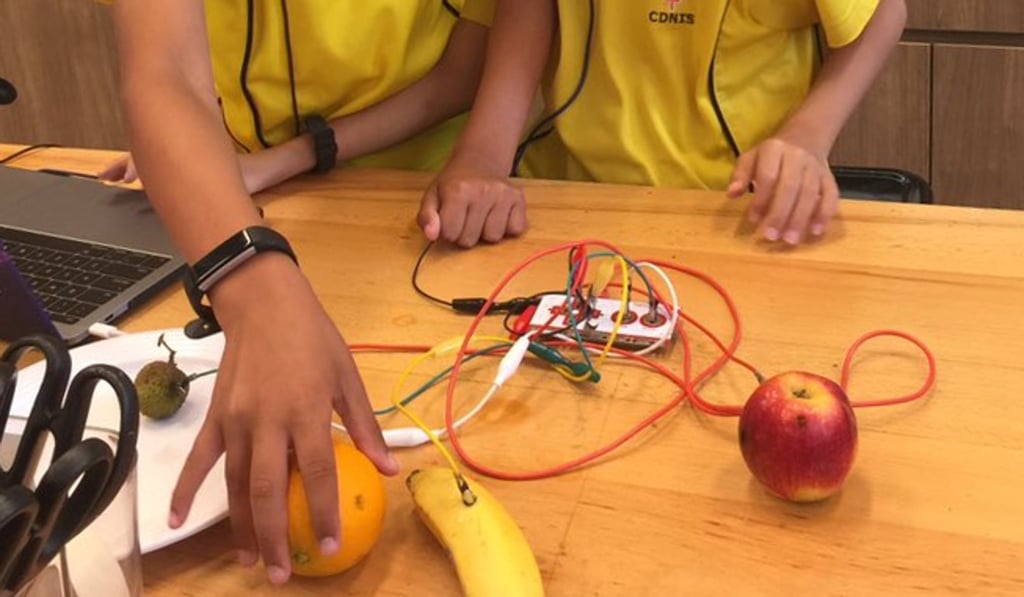Trial of safety wristbands raises data privacy worries at Canadian International School of Hong Kong
- Parents air concerns after school straps Fitbit-style devices to 200 pupils for trial
- But others back move, and interim head says they have safeguards to protect against loss of information

A trial of electronic safety bands has divided parents at a Canadian school in Hong Kong, with some voicing concerns over potential threats to data privacy.
Introduced on May 9 for a six-week trial on 200 Grade Four and Grade Eight pupils, the bands provide real-time information about when students and staff enter and exit the 14-storey Aberdeen campus of the Canadian International School of Hong Kong (CDNIS), or board and exit a bus under contract with the school.
The devices can also count their wearer’s steps or monitor their heart rate.
They came in after consultation with international audit firm PwC and Tencent, the Shenzhen-based tech giant behind social media and mobile payment app WeChat. The devices have no e-payment facility for the trial period, though the school said that was an option in the future.

David Baird, the interim head of school, said the trial was part of the school’s mission to improve student safety.